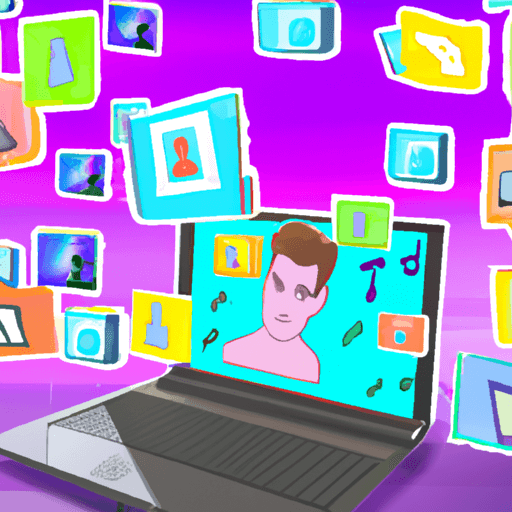The Influence of Social Media on 21st Century Art and Culture
The rise of social media platforms like Facebook, Instagram, and YouTube has had a major impact on the art and culture of the 21st century. These platforms have enabled and hindered creative expression, and have opened up new opportunities and challenges for artists and creators. In this article, we will analyze how social media has changed the way art and culture is shared and experienced, and what implications this has for the future.
Enabling Creative Expression
Social media platforms have made it easier than ever for artists and creators to share their work with large audiences. This has allowed for a greater diversity of creative expression and provided new opportunities for artists who may not have had access to traditional forms of distribution and promotion. For example, independent musicians can now easily reach a wider audience through platforms like YouTube and Bandcamp, while visual artists can use Instagram and other platforms to showcase their work and build an online following.
These platforms have also enabled collaborations between artists from different disciplines and backgrounds, allowing them to create and share experiences that would have been impossible in the past. This has resulted in a new form of art and culture that is more inclusive, accessible, and open to experimentation.
Hindering Creative Expression
Despite the many benefits that social media has brought to the world of art and culture, it has also presented some challenges. For example, the sheer volume of content available on these platforms can make it difficult for artists to stand out and be noticed. This can lead to a sense of “content fatigue” where viewers are overwhelmed by the sheer amount of content and have a hard time engaging with it.
Additionally, the reliance on algorithms and automated curation can lead to content being “shadowbanned” or censored, which can prevent artists from reaching their intended audience. This can be especially problematic for artists working in more niche or experimental genres, as their work may be overlooked simply because it does not fit the algorithms’ criteria.
Implications for the Future
As social media continues to evolve, it is important to consider the implications for the future of art and culture. While these platforms have opened up new possibilities for creative expression, there is also a need for careful regulation to ensure that creators are not taken advantage of or silenced. Additionally, as algorithms become increasingly sophisticated, it is important to ensure that they are not used to limit or censor creative expression.
Overall, social media has had a major impact on the art and culture of the 21st century. It has enabled new forms of creative expression and collaboration, while also presenting challenges for creators trying to reach their audience. As we move forward, it is important to consider how these platforms can be used to foster creativity and collaboration, while also ensuring that creators are fairly compensated for their work.

















Comments
Leave a Comment